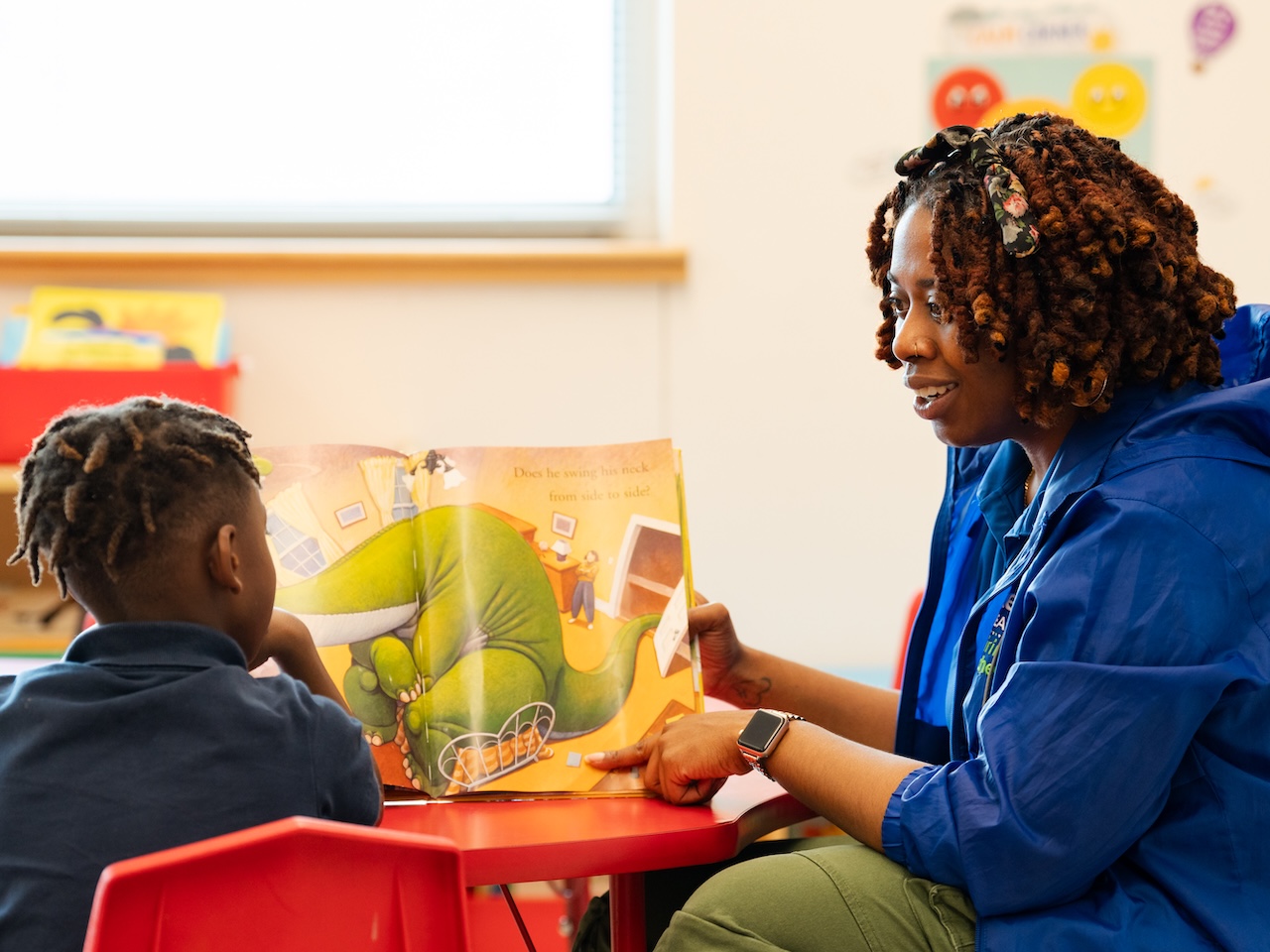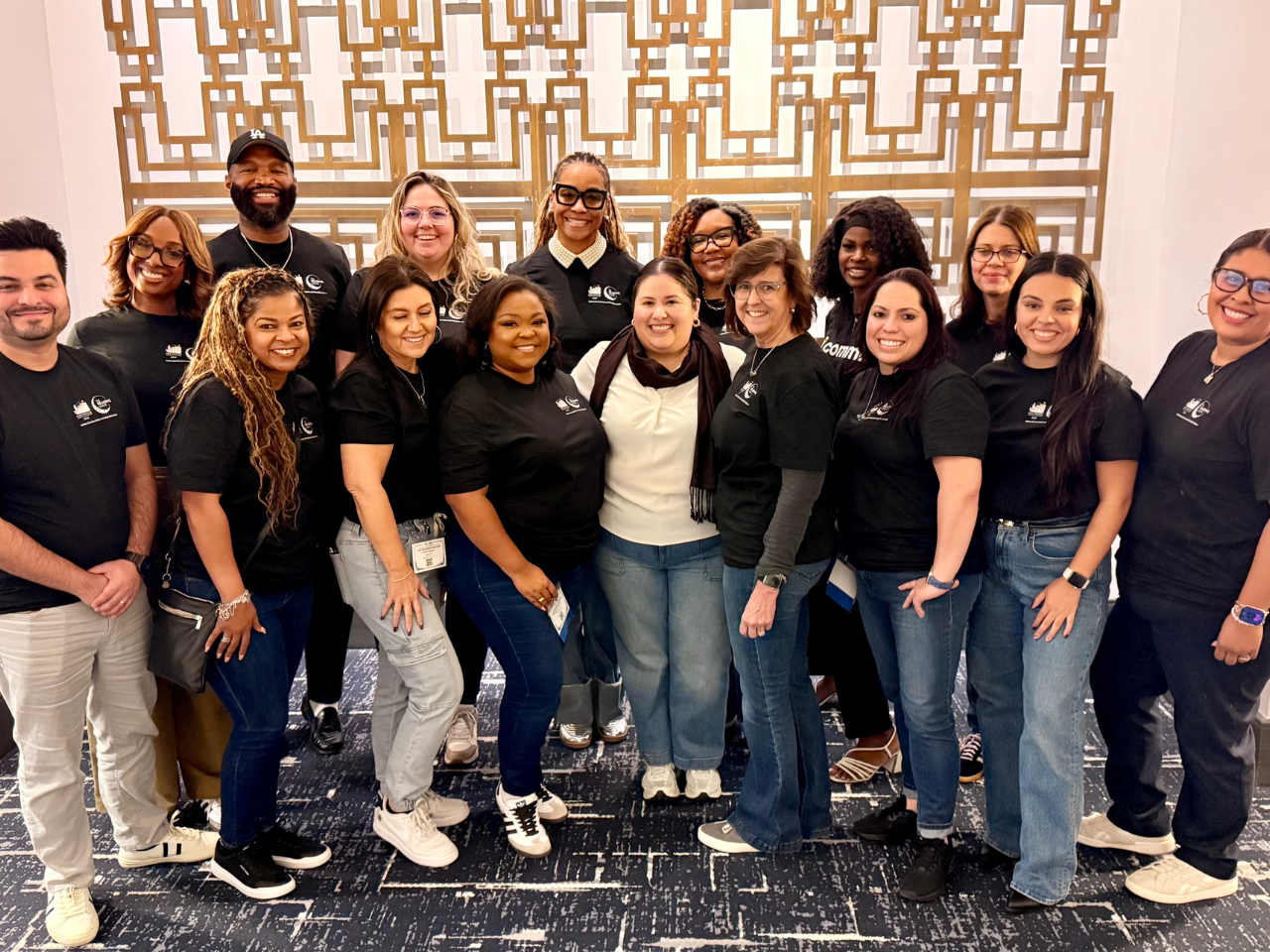“Forum for the Future of Teachers” asks: How do we keep great teachers in the classroom?




In a recent survey, nearly 80 percent of Texas teachers said they have considered leaving the classroom. This finding is supported by data in a new report published by The Commit Partnership, which shows that, following the COVID19 pandemic, teacher turnover in Dallas County rose to an all-time high of 24.7 percent in 2022-23 — showing that nearly one in four teachers left their position that year.
At a community event hosted by Commit Partnership and D Magazine, entitled “Forum for the Future of Texas Teachers,” educators, school administrators, community leaders, and other stakeholders gathered to ask a central question: How can we change that?
The forum, held in D Magazine’s offices, featured a conversation among Rob DeHaas, vice provost of the Dallas College School of Education; Dr. Wendy Eldredge, superintendent of CarrolltonFarmers Branch ISD; Gabe Hernandez, teacher and instructional coach at Dallas ISD; and Chelsea Valdez, managing director of regional talent at Commit Partnership.
In his opening remarks introducing the panel, Commit Partnership President Miguel Solis reflected on his own experience as an educator, underscoring the need to confront this challenge by recognizing both the nature of teaching and the importance of strong mentorship—essential ingredients for building a robust pipeline of quality educators.
“What many of us as educators or former educators already know, teaching is not just a profession, it is a calling, it is a craft, it is a constant act of belief – belief that every student can learn,” Solis said. “Teaching made me who I am, but I didn’t do it alone. I was shaped by mentors who modeled what mastery looked like. I was supported by colleagues who stayed late, swapped lesson plans, who never let me believe that I was in this work alone.”
Despite the support he received, Solis noted that, too often, even students in his classrooms were not meeting gradelevel standards.
“We didn’t need more praise,” Solis said. “We needed more coaching, more clarity, and more support.”
All four panelists shared a sense of urgency about a profession that sits at the heart of creating pathways to career success and economic stability. Multiple studies—including the new Commit Partnership report—confirm that teachers are the single most important inschool factor determining student achievement.
Yet, teacher and instructional coach Gabe Hernandez observed, educators frequently find themselves in the crosshairs of broader systemic challenges.
“Teachers are the shock absorbers of an overwhelmed system,” Hernandez said. “At least in Dallas ISD, you have housing injustice, you have income inequality, you have mental health – you have all these things that are coming together, and you just got 30 kids in a room: Go!”
Hernandez added that, while principals and superintendents work hard to improve their schools, the resulting initiatives can impose extra pressure on teachers. Seven years into his education career, he said, most of the teachers he started with have already left the profession.
Superintendent Dr. Wendy Eldredge explained that these challenges are exacerbated by an ongoing generational transition: many of her district’s most experienced teachers have retired, leaving classrooms staffed largely by educators with fewer than five years of experience. These newer teachers, she said, feel the strain of being on the front lines of so many issues.
“We’re at a crossroads,” Dr. Eldredge said. “I send out a survey and talk to teachers, and the number one [concern] is work life balance. Number two is support. So, what does it mean to have work life balance, and what kind of support can we offer? And when we broke down support, it wasn’t just show me how to teach, it was, ‘Encourage me.’”
One way to offer this encouragement, panelists agreed, is to improve the training and mentorship teachers receive both before and after they enter the classroom. Hernandez recounted his own experience as a firstyear substitute teacher who lost control of his classroom—an experience that ultimately prepared him for the day he became a fulltime teacher.
Vice Provost Rob DeHaas added that partnerships with higher education can help strengthen the pipeline. He cited the success of Dallas College’s Bachelor’s Degree in Education program, which has grown from 200 enrolled students at its launch to more than 1,800.
“We think that people actually want to be teachers, we just don’t think that there are enough accessible high-quality pathways,” DeHaas said.
Commit Partnership’s Chelsea Valdez expressed optimism that bills passed in recent legislative sessions have supported Dallas College’s program, boosted teacher salaries, and aim to providemore mentorship and training throughout teachers’ careers.
“We have districts like Dallas ISD and CFB [Carrollton-Farmers Branch] who are leveraging the Teacher Incentive Allotment to provide even greater salaries to their teachers,” she said. “I’m also excited about HB2 which hopefully shows that we do value teachers through things like compensation and allocating more money towards strong preparation and mentorship. But there’s still work to be done.”
Part of the remaining work, panelists agreed, involves dismantling persistent myths about teaching as a career. Dr. Eldredge noted that many students in her district are unaware that teachers’ salaries have been rising in Texas, that new teachers earn a living wage, and that benefits such as childcare and pensions make the compensation competitive. Region 10 districts, she said, are collaborating to market teaching careers more effectively.
Hernandez broadened that call, urging the community to change the way it talks about teaching. An “echo chamber,” he said, has long discouraged promising students from considering the profession because of misconceptions about salary and other factors. He challenged every stakeholder present to help reverse that narrative.
“I think reversing that echo chamber is something that’s hard to do but it starts with us,” Hernandez says. “It starts with us putting it out there in our circles, with our people. Building this culture and atmosphere that values the profession, and backing it up with the legislation – and creating this atmosphere where kids don’t think, ‘I don’t want to be a teacher because they don’t make any money,’ but instead, ‘Oh hey, maybe I could be a teacher.’”








.avif)